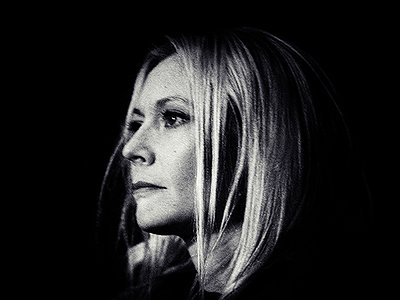Part 2
Time is a variable only seldomly discussed within the context of contemporary composition. Can you tell me a bit about your perspective on time in relation to a composition and what role it plays in your work?
The great thing about writing music is that you get the opportunity to reorganise the passage of time. I do not feel that I am composing in hours and seconds, I am feeling rhythms, intervals, pitch and patterns. Of course these beats relate to the universal timescale (‘beats per minute’ and timecode for film scoring) because this is a useful way to communicate and structure ideas, but fundamentally I am working with alternative units.
What do improvisation and composition mean to you and what, to you, are their respective merits?
I love the freedom and spontaneity of improvisation when I am playing violin. I am currently performing a solo set with loop pedals and no two performances are the same, which is great and keeps things live and fresh. Composition is more academic, less immediate, less reactive, but often a very calming and satisfying process. Improvisation is a good night out, composition is a great night in.
Do you feel it important that an audience is able to deduct the processes and ideas behind a work purely on the basis of the music? If so, how do you make them transparent?
I just want the audience to enjoy my music in their own time and space, for whatever reason. They should not need me to hold their hand through it. Music is about emotional connection and communication, not about demonstrating your workings. I don’t visit a fantastic piece of modern architecture and expect the architect to show me the blueprints.
With more and more musicians creating than ever and more and more of these creations being released, what does this mean for you as an artist in terms of originality? What are some of the areas where you currently see the greatest potential for originality and who are some of the artists and communities that you find inspiring in this regard?
The internet has made it relatively easy to release music and there are myriad voices drowning in a vast sea of digital mediocrity. I just aim to write with integrity and to write music for posterity rather than for contemporary ‘views’ or ‘likes’. I decided on “Postcards from” as my first solo release because I feel it is a coherent and succinct expression of my original sound world.
How would you define the term “interpretation”? How important is it for you to closely work together with the artists performing your work?
Interpretation is personal expression. Notation is always open to discussion and no two players will perform something in the same way because we are human and we all feel things slightly differently. I work regularly with a pool of amazing session musicians in London who are also close friends and who have played my arrangements and music for years. They understand my musical language. The strings understand the bowing articulations that I write and they instinctively know how I want that articulation to sound, and they would also know what drink to order for me at the bar. When I am composing I sometimes realise I am writing for them personally; for example I hear the sound of their cello as I write the cello melody. I get the best results by working with musicians and producers who I know well and who feel comfortable with me and who trust my ear as much as I trust theirs.
The effect of a piece doesn't merely depend on the performance of the musicians, but also on the place it is performed at. How do you see the relationship between location and sound? In how far do you feel the current system of concert halls is still the right one for your music – or for contemporary music in general?
Location is important visually and acoustically. There are definitely ideal locations for certain pieces, and certain combinations never work. Using a rock drum kit in a huge church? Tricky to get right. Performing outside on a festival stage? It could be amazing or disastrous depending on the acoustics and the weather. A purpose-built venue provides a tried and tested controlled environment with engineered acoustic properties so it is a ‘safe’ place to perform if you want to guarantee a successful gig in the broader sense. The more successful you become the more you need to guarantee the quality of the performance because the audience is larger, they are paying a bigger ticket price and the promoter is advancing more. Music can happen outside of this environment, and can often be magical in an unusual setting, but it takes a lot more planning and technical experience to get it right.
What’s your view on the role and function of music as well as the (e.g. political/social/creative) tasks of composers today - and how do you try to meet these goals in your work?
I don’t feel any obligation to perform political, social or creative tasks through writing music. I only write music to communicate my feelings to people that want to listen.
Do you have a musical vision that you haven't been able to realise for technical or financial reasons – or an idea of what music itself could be beyond its current form?
I have several projects that cannot currently be fulfilled for financial reasons. Large-scale orchestral works are hard to fund. This does not stop me writing them. Tours are hard to fund. This does not stop me performing but I do have to scale things down.
Music is constantly changing and always developing. I’m looking forward to seeing what’s around the corner.





